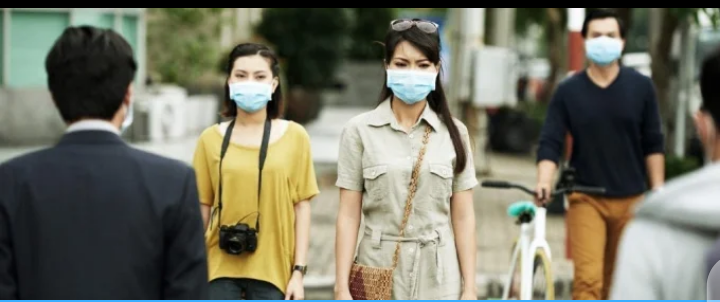Officials Just Confirmed China’s Mystery Virus Spreads by Human to Human Transmission

A SARS-like virus that has spread across China and reached three other Asian nations is contagious between humans, a government expert said Monday, and the World Health Organization announced that a key emergency committee would meet this week to discuss the infections.
The new coronavirus strain, first discovered in the central city of Wuhan, has caused alarm because of its connection to Severe Acute Respiratory Syndrome (SARS), which killed nearly 650 people across mainland China and Hong Kong in 2002-2003.
The total number of people diagnosed with the new virus has risen to 218.
Beijing and Shanghai confirmed their first cases on Monday while more than a dozen more emerged in southern Guangdong province and 136 new ones were found over the weekend in Wuhan, according to state broadcaster CCTV.
A third person died in Wuhan, the local health commission said.
Scientists have scrambled to determine the mode of transmission, with a seafood market in Wuhan believed to be the centre of the outbreak.
But Zhong Nanshan, a renowned scientist at the National Health Commission who helped expose the scale of the SARS outbreak, said patients could contract the new virus without having visited the city.
“Currently, it can be said it is affirmative that there is the phenomenon of human-to-human transmission,” he said in an interview with CCTV.
In Guangdong, two patients were infected by family members who visited Wuhan, Zhong explained.
Fourteen medical personnel helping with coronavirus patients have also been infected, he said, though he added that more than 95 of the total cases were related to Wuhan.
Zhong predicted an increase of viral pneumonia cases during the Lunar New Year holiday – when millions travel in China – but expressed confidence in curbing the spread of the virus, China’s official Xinhua news agency reported.
The World Health Organization panel will meet in Geneva on Wednesday to determine whether to declare the outbreak “a public health emergency of international concern” – a rare designation only used for the gravest epidemics.
WHO said earlier that an animal source seemed to be “the most likely primary source” with “some limited human-to-human transmission occurring between close contacts.”
Wuhan has 11 million inhabitants and serves as a major transport hub, including during the annual Lunar New Year holiday, which begins later this week and sees hundreds of millions of Chinese people travel across the country to visit family.
Weighing in on the matter for the first time, President Xi Jinping said Monday that safeguarding people’s lives should be given “top priority” and that the spread of the epidemic “should be resolutely contained,” according to CCTV.
Xi said it was necessary to “release information on the epidemic in a timely manner and deepen international cooperation,” and ensure people have a “stable and peaceful Spring Festival,” the broadcaster said.
Five cases were reported in Beijing, while in Shanghai a 56-year-old woman who had come from Wuhan was hospitalised and in stable condition, local health authorities said.
South Korea on Monday also reported its first case – a 35-year-old woman who flew in from Wuhan. Thailand and Japan have previously confirmed a total of three cases – all of whom had visited the Chinese city.
There are also six suspected cases in Shanghai and in four provinces and regions in the east, south and southwest of the country.
The virus did not slow down the annual holiday travel rush, though some travellers wore masks at crowded railway stations in Beijing and Shanghai.
“Watching the news, I do feel a little worried. But I haven’t taken precautionary measures beyond wearing regular masks,” said Li Yang, a 28-year-old account manager who was heading home to the northern region of Inner Mongolia for the Lunar New Year.
Detection measures
The WHO said the new cases in China were the result of “increased searching and testing for (the virus) among people sick with respiratory illness.”
Scientists with the MRC Centre for Global Infectious Disease Analysis at Imperial College in London warned in a paper published Friday that the number of cases in Wuhan was likely to be closer to 1,700, much higher than the official figure.
Wuhan authorities said they have installed infrared thermometers at airports and railway and coach stations across the city. Passengers with fever were being registered, given masks and taken to medical institutions.
State TV footage showed medical staff working inside an isolation ward at a Wuhan hospital in hazmat suits.
In Hong Kong, health officials said they were expanding enhanced checks on arrivals to include anyone coming in from Hubei province, not just its capital Wuhan. More than 100 people are being monitored in the city.
Passengers are also being screened at some airports in Thailand and the United States.
In Wuhan, 170 people are still being treated at hospital, including nine in critical condition, the city’s health commission said.
©Sciencealert.com








